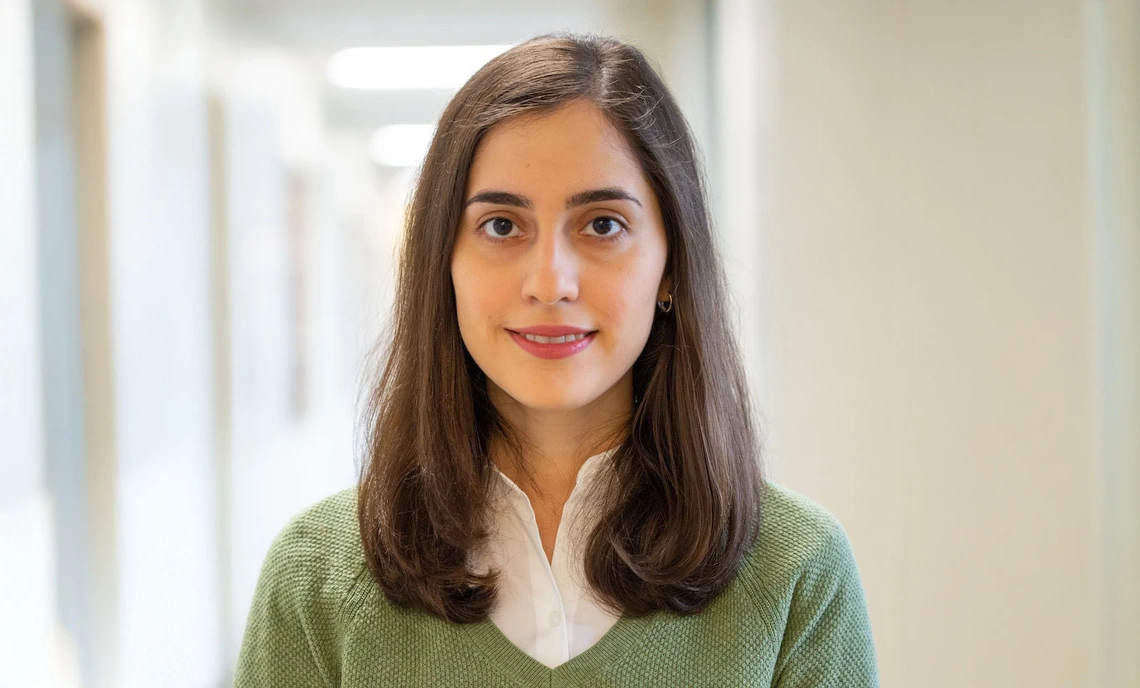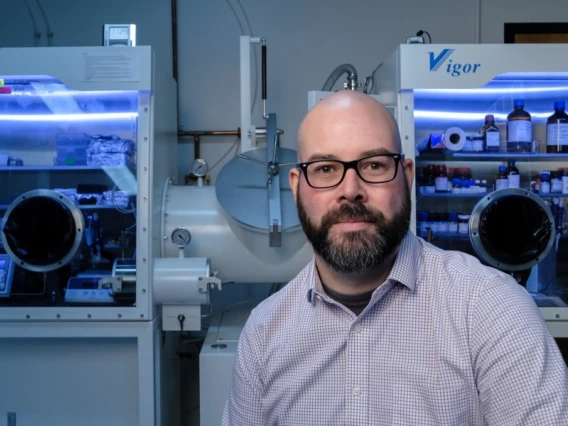NSF CAREER awardee untangles complex systems with mathematical models
The University of Arizona’s Afrooz Jalilzadeh investigates a framework to improve algorithms for machine learning.

Afrooz Jalilzadeh, assistant professor of systems and industrial engineering, creates mathematical models that scale uncertain systems for emerging technologies.
Engineers rely on mathematical models to test algorithms that control everything from power grids to wireless networks. Yet, these models often can't guarantee they'll work as systems grow more and more complex.
Afrooz Jalilzadeh, assistant professor of systems and industrial engineering, received a National Science Foundation CAREER Award to advance a mathematical framework that tackles challenges in distributed power systems – the backbone of modern energy infrastructure, machine learning and wireless communication.
“This research will have lasting effects on both students and the industry,” said Jalilzadeh, who joined the Department of Systems and Industrial Engineering as an assistant professor in 2020 and won the College of Engineering Teacher of the Year award in 2022. “I'm grateful for the award and the support from my department and colleagues.”
Building reliable power systems
With the $512,830 award, Jalilzadeh is building on her work with the Generalized Quasi-Variational Inequalities framework to improve models for smart grids and large-scale machine learning, which relies on complex decision making.
Smart grids use advanced algorithms to monitor electrical performance, detect lapses in service and reroute electricity to meet energy demand in real time. Machine learning uses algorithms to process data and find solutions.
These technologies require accurate models to simulate their performance in the real world. Yet, existing models rely on simplified assumptions that don’t capture the full picture, Jalilzadeh explained.
“For instance, in large-scale networks like energy grids or communication systems, it’s often assumed that resources are shared evenly or that all agents have complete information,” she said. “In reality, participants make decisions independently, and their choices influence one another.”
Jalilzadeh is developing mathematical tools that better represent these interactions, supporting more reliable, efficient and scalable systems.
“It's a wonderful milestone in her career,” said Ricardo Valerdi, department head of systems and industrial engineering. “This award is confirmation that we have amazing faculty who are making an impact.”
Engaging students in research
The award also supports undergraduate research and K-12 outreach.
“The plan is to pair up undergraduates with my PhD students, so they can work together and make their own contributions to this research,” said Jalilzadeh, who is recruiting students from the college’s ENGAGED program, which serves students underrepresented in engineering.
Outreach to encourage careers in engineering extends to middle and high school students. Jalilzadeh is collaborating with the university’s Women in Science and Engineering K-12 STEM program to expand Python-based modules with optimization exercises and virtual lab tours.
“She's the future of this department,” said Valerdi.



